The Importance of Highlighting Black History Month
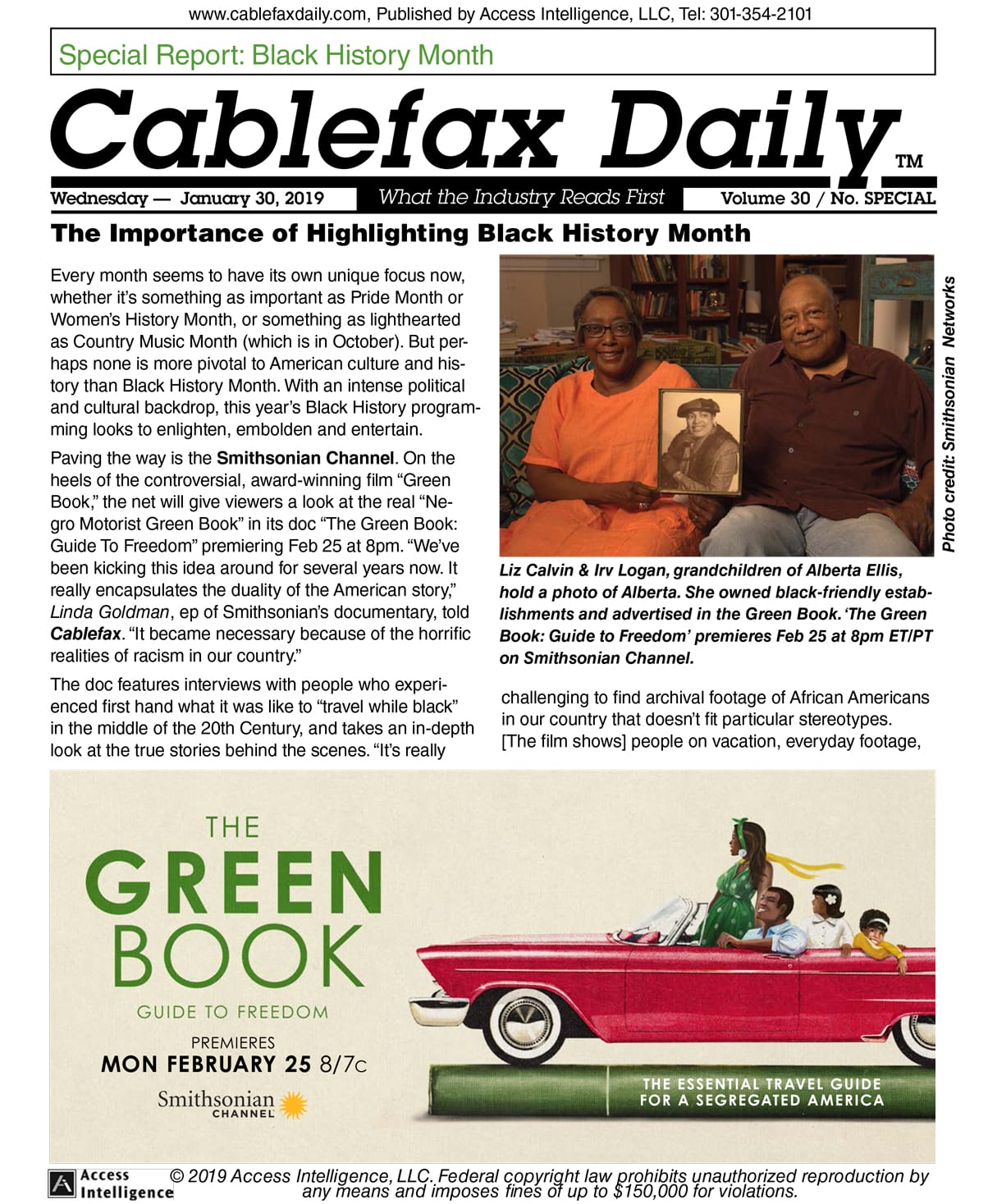
Every month seems to have its own unique focus now, whether it’s something as important as Pride Month or Women’s History Month, or something as lighthearted as Country Music Month (which is in October). But perhaps none is more pivotal to American culture and history than Black History Month. With an intense political and cultural backdrop, this year’s Black History programming looks to enlighten, embolden and entertain.
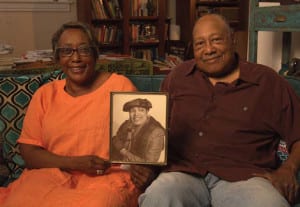
Liz Calvin & Irv Logan, grandchildren of Alberta Ellis, hold a photo of Alberta. She owned black-friendly establishments and advertised in the Green Book. ‘The Green Book: Guide to Freedom’ premieres Feb 25 at 8pm ET/PT on Smithsonian Channel.
Paving the way is the Smithsonian Channel. On the heels of the controversial, award-winning film “Green Book,” the net will give viewers a look at the real “Negro Motorist Green Book” in its doc “The Green Book: Guide To Freedom” premiering Feb 25 at 8pm. “We’ve been kicking this idea around for several years now. It really encapsulates the duality of the American story,” Linda Goldman, ep of Smithsonian’s documentary, told Cablefax. “It became necessary because of the horrific realities of racism in our country.”
The doc features interviews with people who experienced first hand what it was like to “travel while black” in the middle of the 20th Century, and takes an in-depth look at the true stories behind the scenes. “It’s really challenging to find archival footage of African Americans in our country that doesn’t fit particular stereotypes. [The film shows] people on vacation, everyday footage, people with their new cars, it’s really an anecdote to what’s seen or talked about,” Goldman explained. “It was really exciting to be able to find that. Part of the source for that material is the archive at the African American museum at the Smithsonian. It’s so much more than just the dangers of driving while black, which were very real and are definitely discussed.”
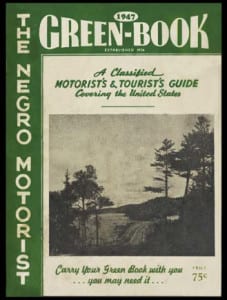 Not satisfied just with airing the doc on the network, Smithsonian will continue its tradition of taking a film on the road during Black History Month. “Green Book” is headed on Smithsonian’s largest tour to date, in partnership with Comcast, Charter and Altice, hitting 18 markets with 19 special screenings. “There’s nothing like being in a room with other human beings and setting aside the time to watch a film and having a dialogue,” Goldman said. “One of the really exciting things this year is for the first time we’re going to be partnering with Google and Hulu to bring the film to their headquarters.”
Not satisfied just with airing the doc on the network, Smithsonian will continue its tradition of taking a film on the road during Black History Month. “Green Book” is headed on Smithsonian’s largest tour to date, in partnership with Comcast, Charter and Altice, hitting 18 markets with 19 special screenings. “There’s nothing like being in a room with other human beings and setting aside the time to watch a film and having a dialogue,” Goldman said. “One of the really exciting things this year is for the first time we’re going to be partnering with Google and Hulu to bring the film to their headquarters.”
The first screening kicks off Jan 31 in Columbia, SC, at the South Carolina State Museum. Screenings will continue throughout the month all over the country. “We’ve been committed to African American history because we believe it’s essential to a greater understanding of our national story,” Goldman said. “The public really wants to understand our history and wants to know more. There are still things that are playing out that have roots in our past. For us this is essential to understanding a lot of the forces that are at work today, understanding the root causes, but also shining a light on experiences that may have initially been overlooked.”
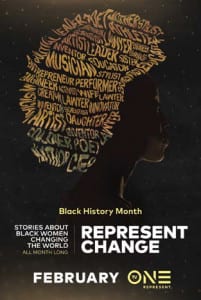 Of course, Smithsonian isn’t the only channel highlighting African American culture and history. TV One will celebrate with an homage to inspirational black women with programming highlighting its 2019 theme “Represent Change.” The net kicks things off with a short-form video campaign featuring 10 influential black women from across the country. Every Wednesday beginning Feb 6 at 9pm, TV One will air movies celebrating women behind the civil rights movement who helped influence change. TV One also just launched sister net CLEO TV, an entertainment and lifestyle network targeting Gen X and Millennial women of color. Its signature series “CLEO Speaks” premieres Feb 9 at 9am.
Of course, Smithsonian isn’t the only channel highlighting African American culture and history. TV One will celebrate with an homage to inspirational black women with programming highlighting its 2019 theme “Represent Change.” The net kicks things off with a short-form video campaign featuring 10 influential black women from across the country. Every Wednesday beginning Feb 6 at 9pm, TV One will air movies celebrating women behind the civil rights movement who helped influence change. TV One also just launched sister net CLEO TV, an entertainment and lifestyle network targeting Gen X and Millennial women of color. Its signature series “CLEO Speaks” premieres Feb 9 at 9am.
BET will debut drama series “American Soul” on Feb 5 at 9pm, telling the story of Don Cornelius and the creation of his legendary music and dance program “Soul Train.” BET kicks off the month with “The 20th Annual Super Bowl Gospel Celebration” on Feb 2, with the concert returning to the net for the sixth consecutive year.
History Channel is celebrating Black History Month with on-air specials premiering throughout February. They include “Honor Deferred,” profiling the seven African American Medal of Honor recipients, who in 1997 were belatedly awarded for their extraordinary service in WWII and “Rise Up: The Movement that Changed America,” a one-hour documentary (from executive producer LeBron James) that explores the key battles in the civil rights movement that transformed American society—from the Montgomery Bus Boycott of 1955 to the Chicago Campaign which led to the Fair Housing Act of 1968. “From the leaders of the civil rights movement who forced change in America, to African American visionaries, leaders and the unsung heroes who have left an indelible impact on our culture, History is committed to sharing these powerful stories across all platforms throughout Black History Month and all year round,” said Eli Lehrer, evp & gm of History.
Comcast has initiatives for the month across multiple brands and networks. “We’re always thinking about what’s important to the community right now, what’s timely, what’s relevant,” said Keesha Boyd, the company’s executive director for multicultural consumer services. “One of the three things we’re doing is really leaning into the New Renaissance in that culture with a new permanent collection called ‘For The Culture.’ It’s content that really celebrates black culture across TV, sports, online, spoken word, digital content, shortform, you name it. It’s a time capsule for what the culture is viewing as important and relevant and timely.”
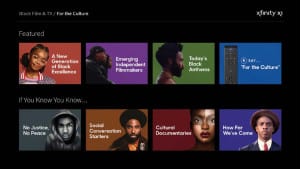
Comcast has curated a selection of on demand programming celebrating black excellence in media, music, and more all month long.
Comcast also is highlighting a different, relevant network each week with free content. Its X1 platform will feature a week of free BET network content and on demand content from TV One, Aspire TV and The Africa Channel. The entire Brown Sugar Video on Demand and Urban Movie Channel lineup will also be available to Xfinity customers for free on X1 for a week, and HBO fans will be able to check out a sampling of titles with or without a subscription. Comcast also continues to add to its Black History Always On collection. “The content that we’ve added is a library of content called Voices of the Civil Rights Movement. Think of it as sort of one-on-one profiles of living civil rights activists and folks that have stories to tell of moments in civil rights history,” said Boyd.
Black history is American history, but it doesn’t always get treated that way, Boyd said. “What February gives us a chance to do is reconnect, not only for the black community but for America as a whole. Look at what’s happening now, how the community is contributing now to pop culture, to music, to sports, to entertainment and politics and social justice,” she said. “It’s always a nice time to just do that and give yourself permission to immerse yourself. I think the entertainment space is a really powerful place to be able to celebrate the community.”
SVODs are also leaning into the month. Curiosity-Stream, like Comcast, has a dedicated collection to black history. “The programs chronicle everything from the slave trade to modern African American icons,” said Vanessa Gillon, director of communications. “We do pride ourselves on incredible, fact-based programming and there’s certainly no category or genre that highlights that better when you’re honoring black history and African Americans in American history,” she continued. “It’s the opportunity to talk about the human experience from this perspective, people who have lived the trials and tribulations, these are really the kinds of programs we see resonate with our viewers. For Black History Month, the most important thing for us is to put the content front and center, not use it in some slick marketing promotion. It will definitely take center stage on our platforms this month.”
– Mollie Cahillane
In Their Own Words…
As part of our Black History Month coverage, we asked some African American pioneers in the industry—trailblazers who broke barriers and took the lead in innovation—to share some of their reflections.
 Mignon Clyburn
Mignon Clyburn
Benton Foundation Board Member
Former FCC commissioner/chair
My early days in the utility regulatory space were often filled with isolation and doubt—and most of the time, those states of being did not begin with me. It was quite common for me to be the only woman or person of color in the room. Once, I was actually told (after strongly sensing this) ‘that the only person anyone had real questions about’ (my abilities and conduct) was me. Assumptions based on preconceived notions and biases were not uncommon then and sadly were not at all surprising, but I quickly put into practice something I often say to those I mentor: I may not be able to control what you do, say or think, but I can darn sure control how I react to it.
While there are still too many conferences and panels that fail to include the best and brightest participants (which at least 50% of the time are women and people of color), and while there are companies and associations that should institute the Rooney Rule when vacancies occur, I no longer feel like that “unicorn” who came into this space in 1998. Attitudes and practices are evolving resulting in outcomes that are more optimal. We still have a long way to go, but things are much improved.
When I reflect on Black History Month, I think depending on your background, experiences and exposure, too few learn about the contributions of people of African descent, which means that they (may) assume that our contributions are few or non-existent. Some of the most significant inventions, much of the early construction and significant architecture in our communities; many of the agricultural practices and crops we still enjoy were “imported” and “cultivated” by enslaved Africans and their descendants. So we should not celebrate Black History Month by simply showing flashing cards with historic shorts and images. We should celebrate because it is an opportune time to educate and inform the unaware.
You asked me who are some of the African Americans who inspire me today. Now that is a sensitive question. My list is really long, so I will not mention a particular person (outside of my parents, of course) for fear of regretting it later. But here are the characteristics they possess: Those who look at bumps in the road as opportunities to pause, take note, then proceed to deliberately go over them. Those who look at rejection as temporary setbacks, not forecasts of their potential for success. Those who are unselfish, who reach back to teach and share what they know to those coming up in the ranks and others who have no mentors… What I learn from people with those qualities is that if you give, help and inspire, your rewards will far surpass what you have released.
 Robert Johnson
Robert Johnson
Founder & Chairman, RLJ Companies
Co-Founder BET
My earliest experience in the industry occurred when I was a government relations executive for the NCTA. The NCTA wanted to demonstrate to a House Committee the technical ability of cable satellite to provide a diversity of programming to compete with broadcast television. To do so, we installed a large cable dish on the Capitol grounds, ran cable to the committee room and brought in a cable box and TV monitors. The demonstration went off without a glitch.
Looking back, what has changed in the industry is the tremendous advances in cable technology and content. What could be better is more diversity of content among minority groups and better cable service to the consumers’ homes. I wouldn’t do anything differently with my career path today despite how the industry has changed because by being in the cable industry in the early ‘80s, I had the opportunity to meet and gain the friendship and support of John Malone. Having that relationship, as I still do today, is something I would never want to change.
As for Black History Month, companies and television should celebrate it to show African Americans and non-African Americans the positive economic and social benefits of what can be achieved if we remember the immortal words of Dr. Martin Luther King that people of all races, creed and color should be judged by the content of their character rather than the color of their skin.
The African Americans who inspired me are the young African Americans who joined me in my crusade to create Black Entertainment Television. BET was not the result of one man; it came about because some of the best and brightest African Americans believed in my vision and leadership and agreed to take a risk that working together, we could create the most successful African American media company in the country; and, we did.
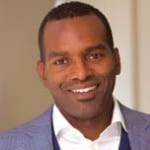 Rahsan-Rahsan Lindsay
Rahsan-Rahsan Lindsay
EVP Ad Sales & Marketing
TV One/CLEO TV
I started on the advertising agency side of the business at Leo Burnett USA and my early experiences let me know how important it was to be as prepared as possible for meetings. In addition, I quickly learned that just because I didn’t have experience didn’t mean my opinion was less important. One of my early successes stemmed directly from presenting an opinion that wasn’t shared by the superiors. It was an opportunity to provide cultural context and ultimately, the account lead decided to go with my suggestion. It taught me the importance of speaking up.
While I know things are changing dramatically, I probably wouldn’t change anything on my career path itself. However, I would probably set up a mechanism for the industry to support people of color. We have done an OK job of getting recent grads of color into the industry, but we have done a very poor job of retaining such talent. Some of that is due to the lack of career advancement, but I believe much of the retention problem is due to the lack of day-to-day support and guidance for working through problems.
The biggest change I’ve seen since the early days is the availability of information at our fingertips that might have taken me a week to pull when I first started. That said, it is also more difficult to vet sources. There are far more opinions and much more data available, but not necessarily greater insights. Overall, the industry has done a poor job with diversity, yet the availability of information makes many people feel it is less important to have diverse voices in the room.
Black History Month is important because so much of the current state of US culture is a result of those who came before us. Studying black history and acknowledging the accomplishments of African Americans is critical in order to give context regarding black influence on US culture.
 Benita Fitzgerald Mosley
Benita Fitzgerald Mosley
CEO, Laureus Sport for Good Foundation USA
Former WICT CEO
Serving as CEO of WICT is one of the most significant steps along my career journey, and I have very fond memories of the cable industry. Everyone from senior executives to local WICT chapter leaders welcomed this newcomer that had absolutely no cable experience with open arms.
There were several highlights during my 8-year tenure—launching the WICT PAR Initiative and celebrating the Best Companies for Women in Cable, creating a new brand identity that included the WICT logo and the WICT Touchstones of Leadership, and of course, presiding over eight WICT Galas. However, the most significant highlight was participating in Class 9 of the famed Betsy Magness Leadership Institute (BMLI) during my second year as WICT’s CEO.
BMLI set me up for success by providing the tools I needed to be a more effective leader. Most importantly, BMLI connected me with some of the most incredible women I’ve ever met, who helped me assimilate into this tight-knit industry. BMLI is celebrating its 25th anniversary in 2019 with over 1000 women executives having graduated from a program that has honed the leadership skills and developed lifelong friendship among some of the most talented women in the cable industry, or any industry for that matter. The amazing success of the program prompted our team to add a second class each year, so classes 38 and 39 are now matriculating through this prestigious and challenging curriculum. Kudos to an industry that celebrates and supports women’s leadership at its best!
 Michael Powell
Michael Powell
President & CEO, NCTA
Former FCC Chairman
I traveled a somewhat winding road to leadership in our industry. And I’ve been preceded in our business by many leaders of color whom I admire and deeply respect—Alfred Liggins and his mother, Cathy Hughes; Bob Johnson; Oprah Winfrey; Debra Lee; Jonathan Rodgers and others. They’ve proven that our diversity is our strength, and that our differences bring new attributes to America that can be shared, enjoyed, and celebrated by all Americans.
They were fearless, relentlessly pursuing their vision and overcoming every barrier placed in their paths. And they believed in the power of partnership, building bridges and marshaling relationships to achieve ultimate success. These lessons have helped guide me as I’ve taken on challenges and opportunities as the first person of color at the helm of NCTA.
When I talk today with young executives of color about some of the lessons I have learned in my own career, I urge them not to let others define who they are. To fight to be included in the councils where decisions are made. And always, to be true to themselves. These are ways in which we can perpetuate the strides made by our predecessors, on whose shoulders we stand.
We owe our nation—which has blessed our innovation and success—recognition and commemoration of Black History Month. We do so to cherish and celebrate the breakthroughs of all the pioneers of color who stared down adversaries and broke down walls. It’s critically important for our business to speak to all of America, including the disenfranchised and disadvantaged. The deployment of broadband gives us the power to touch and enrich the lives of all Americans. And the myriad content we offer builds equity and inclusion for all. We must pursue this mission, to embrace inclusiveness in our increasingly diverse society.
 Michelle Rice
Michelle Rice
General Manager
TV One/CLEO TV
I started in the cable industry through the Walter Kaitz Fellowship program in an area of affiliate sales handling “special markets development” or “alternate distribution technologies.” This area of affiliate sales included anything that was not traditional fiber cable distribution. Since I was an eager newbie, I was given this tiny piece of business to develop because no one else wanted it. At the time, no one believed it would ever amount to anything, especially DirecTV or DISH. Everyone assumed customers would never nail a pizza pie-size satellite dish to the roof of their house. Moreover, these companies would never get content distribution rights from programmers, especially the broadcast networks. Well, it was great for my career that these assumptions were far from right—and the rest is history.
Back then, the cable industry was pretty decentralized. There were a lot more cable companies and a lot of the decisions were made at regional or division offices based on the needs of the DMA. Over the years, with industry consolidation, the business has become more centralized with most key product, marketing and programming decisions made at the corporate office. While I understand the practical benefit of conforming MVPD-wide business practices to a single standard, I’m not sure a ‘one size fit all’ approach has benefited the local customer or had the best outcome on content diversity. Showcasing diverse content offered by small independent networks like TV One and CLEO TV can influence social change and influence positive learnings about the diverse lifestyles, heritages, cultures and stories.
Black History Month is a great opportunity for us to partner with affiliates, but its only one piece of a bigger responsibility to promote diversity and inclusion. Our collective responsibility is much greater than one month. I am fortunate to work at a company that honors diversity 365 days of the year. My work reflects my passion, so I wouldn’t change a thing about my career path. I’ve had highs and lows, but each step has been valuable and has propelled me toward this moment. I believe my current role is the culmination of all of my hard work and efforts throughout the years. I am inspired everyday by our mission and lucky to lead so many smart and amazing people. I draw daily inspiration from lessons learned from my parents and grandparents who each instilled incredible values in me—most importantly faith, family, humility and grit. I am inspired by Urban One founder Cathy Hughes as well as Tarana Burke, Kamala Harris, Serena Williams, Ava DuVernay, Oprah Winfrey and Michelle and Barack Obama. Those are names we probably all know well, but I am most inspired by the names of the women and men we are yet to know from this current generation who are unapologetically seeking justice and equity for all human beings. I am not only inspired by them, but hopeful for the future of our country and my children.